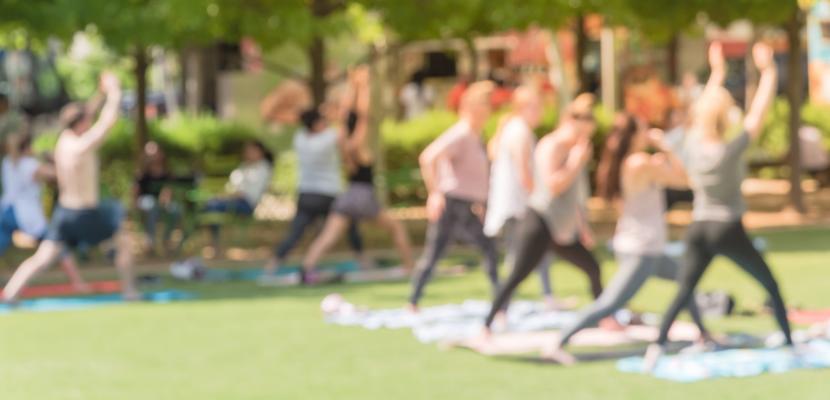
As Gold Coasters continue to flout COVID-19 restrictions, a biomedical scientist has issued a warning against public gyms, saying they’re a high-risk location for spreading the deadly virus.
The decision by the Federal government to close gyms, alongside other venues where large groups of people regularly gather, has driven many fitness buffs to use public gyms found in parks and recreational areas.
But as well as ignoring the government restriction on public gatherings, Bond University’s Dr Lotti Tajouri says those using public gyms were putting themselves and others at risk.
“You obviously have a lot of individuals that come to the park and use the equipment. You don’t really know if those individuals are sick or a carrier of the virus.
“There’s also an issue with superspreaders, because some of them don’t even know they have the virus, and they can share it in many ways, including using public gym equipment. By sneezing on it, coughing on it, or simply touching it, you have a perfect way to spread the virus to the next user.”
Dr Tajouri also slammed the attitude of some younger people, who he felt were not taking the health crisis seriously.
He said while the percentage of young people dying from COVID-19 was much smaller than older individuals, many still ended up in intensive care and would have long-lasting health impacts including damage to their lungs. He warned this could even happen to individuals with no symptoms, potentially taking several years to heal.
“If you’re a young individual and you think you’re immortal and you don’t really mind about getting the virus because you think you don’t have a likelihood of dying, your attitude is close to criminal.
“You might transmit the virus to other individuals. Let’s say you’re using the public park or gym and you transmit the virus to your friend, then your friend goes home and might transmit the virus to their grandmother or grandfather – that’s extremely risky for those older individuals.
“Instead, do as our Olympians do and create your own gym or workout at home – a great example of civic responsibility and solidarity.”
Dr Oliver Baumann, Assistant Professor of Psychology at Bond University, said part of the issue was that public health campaigns on issues such as smoking, and fitness, tended to be not very effective.
“Just giving advice that you shouldn’t do something because it’s not healthy, typically doesn’t work.
“Invisible dangers are even more problematic. If we can not see things like viruses or climate change, even if we understand it, we don’t get an emotional fear or anxiety from it, so it’s very difficult to generate any motivated behavior that goes along with it.”
He said there was also a risk that some people saw the restrictions as an infringement on their autonomy.
“Especially in Western societies, people often have a harder time accepting reductions of personal freedoms, so it can be a factor in why people might not listen to government health warnings.”
Dr Baumann said while public health advice was limited in its impact, policy interventions did work, and effective behavior change sometimes required penalties to be put in place.
“On-the-spot fines similar to littering would be necessary to ensure people listen to warnings, and once that word gets out about fines, it’s a much more tangible and real risk for some people, rather than the unspecified risk of getting ill from a virus.”